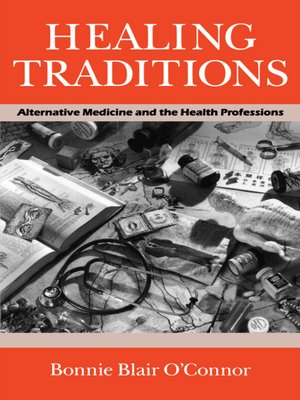Healing Traditions
ebook ∣ Alternative Medicine and the Health Professions · Studies in Health, Illness, and Caregiving
By Bonnie Blair O'Connor

Sign up to save your library
With an OverDrive account, you can save your favorite libraries for at-a-glance information about availability. Find out more about OverDrive accounts.
Find this title in Libby, the library reading app by OverDrive.



Search for a digital library with this title
Title found at these libraries:
| Library Name | Distance |
|---|---|
| Loading... |
The popularity and practice of alternative medicine continues to expand at astonishing rates. In Healing Traditions, Bonnie Blair O'Connor considers the conflicts that arise between the values and assumptions of Western, scientific medicine and those of unconventional health systems. Providing in-depth examples of the importance and benefits of alternative health practices—including the extraordinarily extensive and sophisticated HIV/AIDS alternative therapies movement—O'Connor identifies ways to integrate alternative strategies with orthodox medical treatments in order to ensure the best possible care for patients.
In spite of the long-standing prediction that, as science and medicine progressed—and education became more generally available—unconventional systems would die out, they have persisted with undiminished vitality. They have, in fact, experienced a reinvigoration and expansion during the last fifteen to twenty years. In the United States, this renewal is fueled by people representing a wide cross-section of American society, and most of them also use conventional medicine. This eclecticism can result in conflicts between the values and assumptions of Western, scientific medicine and those of unconventional health systems.
O'Connor demonstrates the importance of understanding how various belief systems interact and how this interaction affects health care. She argues that through neutral observation and thorough description of health belief systems it is possible to gain an understanding of those systems, to identify likely points of conflict among systems—especially conflicts that may occur in conventional care settings—and to intervene in ways that ensure the best possible care for patients.







